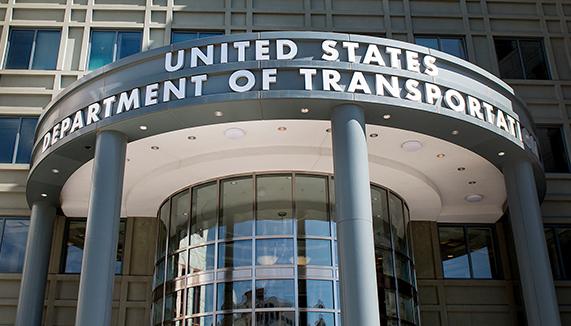Source: US DOT
The U.S. Department of Transportation (USDOT) shared that the year-to-date flight cancelation rate for 2024 is 1.6% heading into the Labor Day holiday weekend. Despite significant flight disruptions in July brought on by the global CrowdStrike outage, summer storms, and record-breaking air travel volumes, the year-to-date cancelation rate remains below 2022 and pre-pandemic levels.
Air travel volumes this summer are the highest on record. The Transportation Security Administration (TSA) has already screened 239.8 million people since Memorial Day weekend, which is an average of 2.7 million per day. The top ten busiest travel days in the agency’s history have all occurred this year since May 2024, and a new milestone was reached on July 7, when more than 3 million people were screened in a single day for the first time.
Ahead of Labor Day air travel, U.S. Transportation Secretary Pete Buttigieg shared a video over social mediwith safety reminders for passengers.
Following disruptions stemming from the CrowdStrike outage in July, Secretary Buttigieg sent a letter to the ten largest U.S. airlines to warn them about their legal responsibilities to passengers during flight disruptions, including:
- Airlines must clearly and proactively inform passengers of their right to a refund whenever their flight is canceled or significantly changed.
- Cash refunds – not vouchers or credits – must be automatic for passengers when they are owed.
- Airlines should make it easy for passengers to get free rebooking, meals, hotels, and/or transportation to and from hotels as promised during disruptions caused by an airline issue.
- If passengers opt for vouchers or credits after a canceled or significantly changed flight, they must be valid for at least five years.
Since the beginning of the Biden-Harris Administration, USDOT has taken historic action to improve airline passenger rights and oversight of the airline industry:
- Created a new rule to require airlines to provide automatic cash refunds to passengers when owed.
- The rule makes clear that airline passengers are entitled to a refund when their flight is canceled or significantly changed and they no longer wish to take that flight or be rebooked, when their checked baggage is significantly delayed, or when extra services they paid for – like Wi-Fi – are not provided. The rule also requires refunds to be automatic, prompt, in the original form of payment, and in the full amount paid.
- Provisions of the final rule on airline refunds were fortified through the FAA Reauthorization Act of 2024 that President Biden signed into law on May 16, 2024.
- Created a new rule to protect consumers from costly surprise airline junk fees.
- The rule fosters a more competitive airline market by requiring airlines to disclose critical extra fees upfront – like change fees and baggage fees – to ensure consumers can better understand the true cost of their travel. The rule also bans “bait-and-switch” advertising tactics and requires airlines to clearly tell passengers upfront that a seat is included with the cost of their ticket, and they don’t need to pay extra. American Airlines, United Airlines, Delta Air Lines, Alaska Airlines, Hawaiian Airlines, JetBlue, and Airlines for America have challenged this rule in court, and the court has put a temporary hold on implementation of the rule. The Department will continue to defend this rule and notes that nothing in the Court’s decision prevents airlines from voluntarily complying with this common-sense rule. If the rule were to go into effect, it would save consumers over half a billion dollars every year.
- Expanded the Department’s capacity to review air travel service complaints by partnering with a bipartisan group of state attorneys general, which will help hold airlines accountable and protect the rights of the traveling public. Attorneys general who have signed a memorandum of understanding with DOT will be able to access the new complaint system this fall.
- Secured enforceable guarantees from airlines to provide food, lodging, and other support when they strand passengers. After DOT launched flightrights.gov, all 10 large U.S. airlines committed to providing passengers with free rebooking, meals, hotel accommodations, and other amenities when they are responsible for causing a significant delay or cancellation. These are new commitments the airlines added to their customer service plans that DOT can legally ensure they adhere to through enforcement action.
- Ensured airline passengers received nearly $4 billion in refunds and reimbursements owed to them –including over $600 million owed to passengers affected by the Southwest Airlines holiday meltdown in 2022.
- Issued nearly $170 million in penalties against airlines for consumer protection violations since President Biden took office. In comparison, between 1996 and 2020, DOT collectively issued just over $70 million in penalties against airlines for consumer protection violations.

